
Paul Gauguin Painting Reproductions 5 of 8
1848-1903
French Post-Impressionist Painter
183 Gauguin Paintings
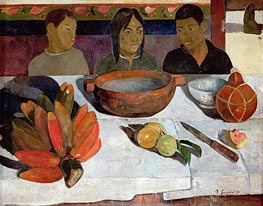
The Meal, Bananas 1891
Oil Painting
$939
$939
Canvas Print
$73.51
$73.51
SKU: GAP-13060
Paul Gauguin
Original Size: 73 x 92 cm
Musee d'Orsay, Paris, France
Paul Gauguin
Original Size: 73 x 92 cm
Musee d'Orsay, Paris, France
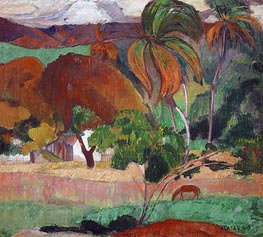
Apatarao 1893
Oil Painting
$639
$639
Canvas Print
$81.86
$81.86
SKU: GAP-13063
Paul Gauguin
Original Size: 49 x 54 cm
New Carlsberg Glyptotek, Copenhagen, Denmark
Paul Gauguin
Original Size: 49 x 54 cm
New Carlsberg Glyptotek, Copenhagen, Denmark
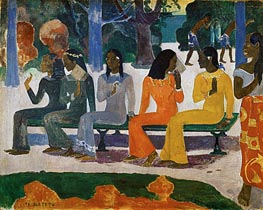
Ta Matete (We Shall Not Go to Market Today) 1892
Oil Painting
$868
$868
Canvas Print
$74.70
$74.70
SKU: GAP-13065
Paul Gauguin
Original Size: 73 x 92 cm
Kunstmuseum, Basel, Switzerland
Paul Gauguin
Original Size: 73 x 92 cm
Kunstmuseum, Basel, Switzerland
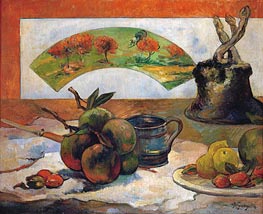
Still Life with Fruits and Fan 1888
Oil Painting
$671
$671
Canvas Print
$94.36
$94.36
SKU: GAP-13088
Paul Gauguin
Original Size: 50 x 61 cm
Musee d'Orsay, Paris, France
Paul Gauguin
Original Size: 50 x 61 cm
Musee d'Orsay, Paris, France
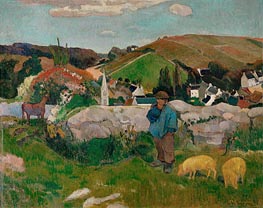
The Swineherd (Peasants with Pigs) 1888
Oil Painting
$926
$926
Canvas Print
$74.02
$74.02
SKU: GAP-13089
Paul Gauguin
Original Size: 73 x 93 cm
Los Angeles County Museum of Art, California, USA
Paul Gauguin
Original Size: 73 x 93 cm
Los Angeles County Museum of Art, California, USA
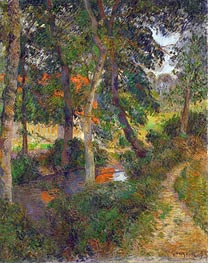
Father Jean's Walk (The Red Roofs) 1886
Oil Painting
$780
$780
Canvas Print
$73.68
$73.68
SKU: GAP-13090
Paul Gauguin
Original Size: 81 x 65 cm
Public Collection
Paul Gauguin
Original Size: 81 x 65 cm
Public Collection
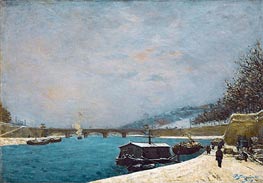
The Seine near the Pont de Jena 1875
Oil Painting
$758
$758
Canvas Print
$65.01
$65.01
SKU: GAP-13091
Paul Gauguin
Original Size: 65 x 92.5 cm
Musee d'Orsay, Paris, France
Paul Gauguin
Original Size: 65 x 92.5 cm
Musee d'Orsay, Paris, France
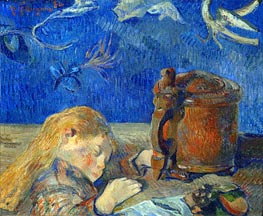
The Sleeping Child 1884
Oil Painting
$683
$683
Canvas Print
$78.99
$78.99
SKU: GAP-13092
Paul Gauguin
Original Size: 46 x 55.5 cm
Private Collection
Paul Gauguin
Original Size: 46 x 55.5 cm
Private Collection
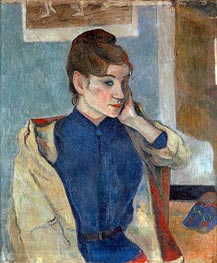
Portrait of Madeleine Bernard 1888
Oil Painting
$758
$758
Canvas Print
$77.09
$77.09
SKU: GAP-13093
Paul Gauguin
Original Size: 72 x 58 cm
Musee des Beaux Arts, Grenoble, France
Paul Gauguin
Original Size: 72 x 58 cm
Musee des Beaux Arts, Grenoble, France
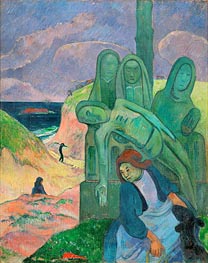
Green Christ 1889
Oil Painting
$922
$922
Canvas Print
$73.85
$73.85
SKU: GAP-13094
Paul Gauguin
Original Size: 92 x 73 cm
Royal Museums of Fine Arts, Brussels, Belgium
Paul Gauguin
Original Size: 92 x 73 cm
Royal Museums of Fine Arts, Brussels, Belgium
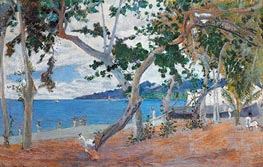
Seashore (Island of Martinique) 1887
Oil Painting
$638
$638
Canvas Print
$61.75
$61.75
SKU: GAP-13095
Paul Gauguin
Original Size: 54 x 90 cm
New Carlsberg Glyptotek, Copenhagen, Denmark
Paul Gauguin
Original Size: 54 x 90 cm
New Carlsberg Glyptotek, Copenhagen, Denmark
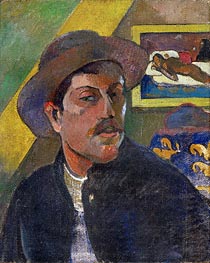
Self Portrait with Hat In the Background Manao Tupapau c.1893/94
Oil Painting
$609
$609
Canvas Print
$61.75
$61.75
SKU: GAP-13096
Paul Gauguin
Original Size: 46 x 38 cm
Musee d'Orsay, Paris, France
Paul Gauguin
Original Size: 46 x 38 cm
Musee d'Orsay, Paris, France
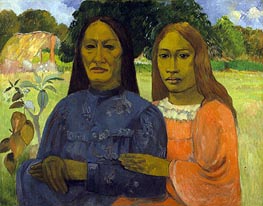
Two Women c.1901/02
Oil Painting
$898
$898
Canvas Print
$73.51
$73.51
SKU: GAP-13097
Paul Gauguin
Original Size: 73.7 x 92.1 cm
Metropolitan Museum of Art, New York, USA
Paul Gauguin
Original Size: 73.7 x 92.1 cm
Metropolitan Museum of Art, New York, USA
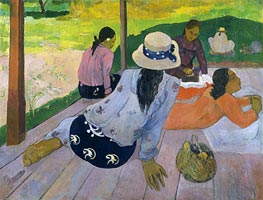
The Siesta c.1892/94
Oil Painting
$885
$885
Canvas Print
$71.12
$71.12
SKU: GAP-13098
Paul Gauguin
Original Size: 88.9 x 116.2 cm
Metropolitan Museum of Art, New York, USA
Paul Gauguin
Original Size: 88.9 x 116.2 cm
Metropolitan Museum of Art, New York, USA
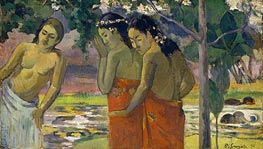
Three Tahitian Women 1896
Oil Painting
$683
$683
Canvas Print
$61.75
$61.75
SKU: GAP-13099
Paul Gauguin
Original Size: 24.4 x 43.2 cm
Metropolitan Museum of Art, New York, USA
Paul Gauguin
Original Size: 24.4 x 43.2 cm
Metropolitan Museum of Art, New York, USA
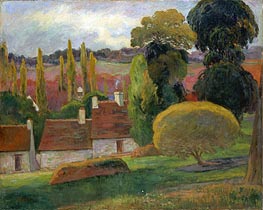
A Farm in Brittany 1894
Oil Painting
$887
$887
Canvas Print
$74.53
$74.53
SKU: GAP-13100
Paul Gauguin
Original Size: 72.4 x 90.5 cm
Metropolitan Museum of Art, New York, USA
Paul Gauguin
Original Size: 72.4 x 90.5 cm
Metropolitan Museum of Art, New York, USA
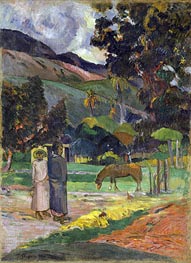
Tahitian Landscape n.d.
Oil Painting
$621
$621
Canvas Print
$68.06
$68.06
SKU: GAP-13101
Paul Gauguin
Original Size: 64.5 x 47.3 cm
Metropolitan Museum of Art, New York, USA
Paul Gauguin
Original Size: 64.5 x 47.3 cm
Metropolitan Museum of Art, New York, USA
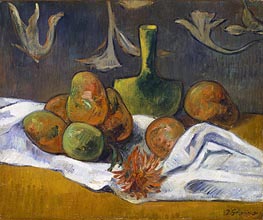
Still Life 1891
Oil Painting
$539
$539
Canvas Print
$61.75
$61.75
SKU: GAP-13102
Paul Gauguin
Original Size: 38.4 x 46.4 cm
Metropolitan Museum of Art, New York, USA
Paul Gauguin
Original Size: 38.4 x 46.4 cm
Metropolitan Museum of Art, New York, USA
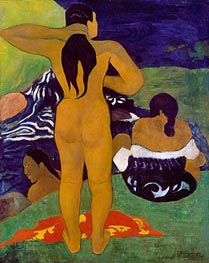
Tahitian Women Bathing 1892
Oil Painting
$907
$907
Canvas Print
$74.36
$74.36
SKU: GAP-13103
Paul Gauguin
Original Size: 109.9 x 89.5 cm
Metropolitan Museum of Art, New York, USA
Paul Gauguin
Original Size: 109.9 x 89.5 cm
Metropolitan Museum of Art, New York, USA
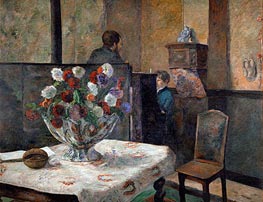
Still Life with Flowers (Interior of the Artist's ... n.d.
Oil Painting
$990
$990
Canvas Print
$71.64
$71.64
SKU: GAP-13104
Paul Gauguin
Original Size: unknown
Nasjonalgalleriet, Oslo, Norway
Paul Gauguin
Original Size: unknown
Nasjonalgalleriet, Oslo, Norway
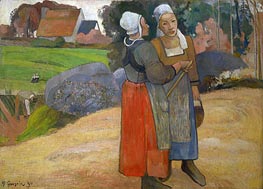
Breton Peasant Women 1894
Oil Painting
$911
$911
Canvas Print
$67.21
$67.21
SKU: GAP-13105
Paul Gauguin
Original Size: 66 x 92.5 cm
Musee d'Orsay, Paris, France
Paul Gauguin
Original Size: 66 x 92.5 cm
Musee d'Orsay, Paris, France
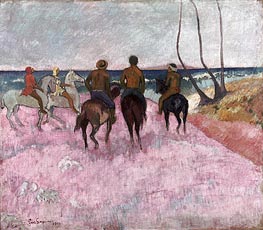
Riders on the Beach 1902
Oil Painting
$669
$669
Canvas Print
$81.68
$81.68
SKU: GAP-13106
Paul Gauguin
Original Size: 66 x 76 cm
Museum Folkwang, Essen, Germany
Paul Gauguin
Original Size: 66 x 76 cm
Museum Folkwang, Essen, Germany
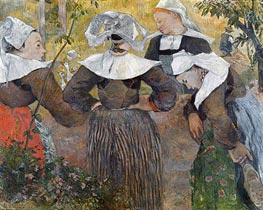
Four Breton Women 1886
Oil Painting
$970
$970
Canvas Print
$74.87
$74.87
SKU: GAP-13107
Paul Gauguin
Original Size: 72 x 91 cm
Neue Pinakothek, Munich, Germany
Paul Gauguin
Original Size: 72 x 91 cm
Neue Pinakothek, Munich, Germany
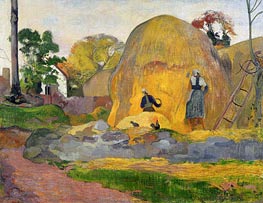
Yellow Haystacks (Blond Harvest) 1889
Oil Painting
$837
$837
Canvas Print
$71.98
$71.98
SKU: GAP-13108
Paul Gauguin
Original Size: 73.5 x 92.5 cm
Musee d'Orsay, Paris, France
Paul Gauguin
Original Size: 73.5 x 92.5 cm
Musee d'Orsay, Paris, France